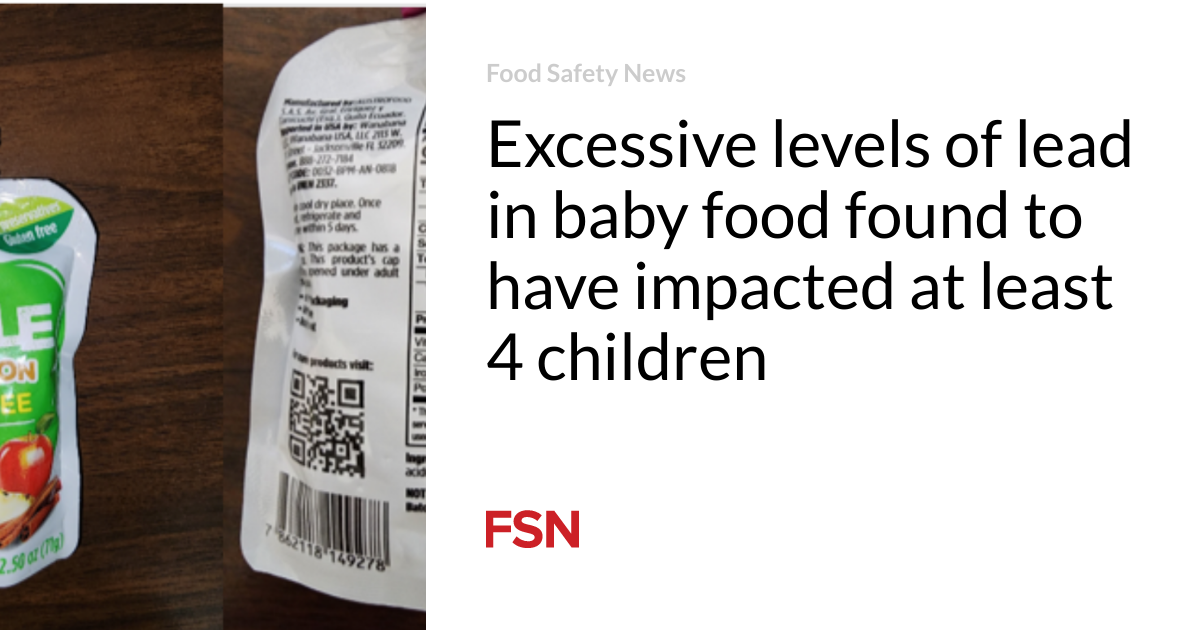
The FDA is advising parents and caregivers not to buy or feed WanaBana apple cinnamon fruit puree pouches to children because the product may contain elevated levels of lead.
Parents and caregivers of toddlers and young children who may have consumed WanaBana apple cinnamon fruit puree pouches should contact their child’s healthcare provider about getting a blood test, according to the public warning from the Food and Drug Administration.
The company has agreed to voluntarily recall all WanaBana apple cinnamon fruit puree pouches regardless of expiration.
- WanaBana apple cinnamon fruit puree pouches, all lot codes and expiration dates.
- WanaBana apple cinnamon fruit puree pouches are sold nationally and are available through multiple retailers including Sam’s Club, Amazon and Dollar Tree.
- WanaBana has agreed to voluntarily recall all WanaBana apple cinnamon fruit puree pouches regardless of expiration.
The FDA was recently made aware of a developing investigation by the North Carolina Department of Health and Human Services and the North Carolina Department of Agriculture & Consumer Services about four children with elevated blood lead levels, indicating potential acute lead toxicity.
The state investigation identified WanaBana apple cinnamon fruit puree pouches as a potential shared source of exposure. As part of their investigation, the department of health and human services analyzed multiple lots of WanaBana apple cinnamon fruit puree, detecting extremely high concentrations of lead.
The FDA has reviewed and supports the state’s analytical findings and found that analytical results at this level could result in acute toxicity.
Lead is toxic to humans and can affect people of any age or health status. In children it can result in a variety of problems including learning disabilities.
Protecting children from exposure to lead is important to lifelong good health. Lead exposure in children is often difficult to see. Most children have no obvious immediate symptoms. If there’s suspicion that a child may have been exposed to lead, parents should talk to their child’s healthcare provider about getting a blood test. Although lead can only be diagnosed through clinical testing, signs and symptoms of lead toxicity vary based on exposure.
Short term exposure to lead could result in the following symptoms:
- Headache
- Abdominal pain/Colic
- Vomiting
- Anemia
Longer term exposure could result in additional symptoms:
- Irritability
- Lethargy
- Fatigue
- Muscle aches or muscle prickling/burning
- Occasional abdominal discomfort
- Constipation
- Difficulty concentrating/Muscular exhaustibility
- Headache
- Tremor
- Weight loss
(To sign up for a free subscription to Food Safety News,click here)
